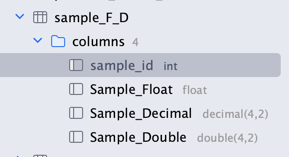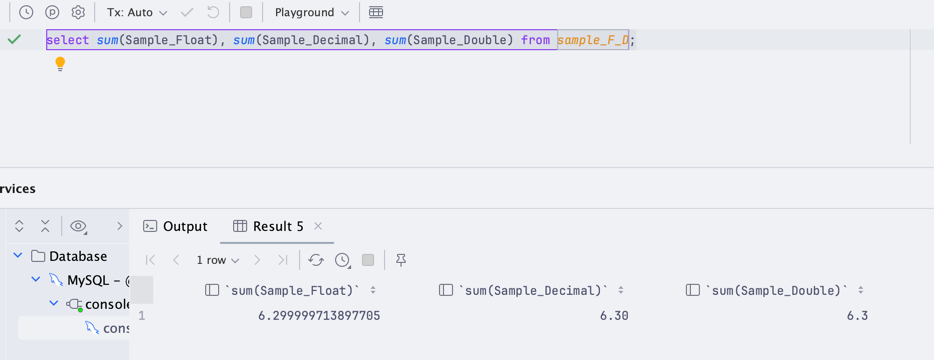When deciding how to store your data in MySQL - you might see a few options. Especially if you look at float variations:
-
float -
double -
decimal
But which one should you use? What's the difference? Let's take a look at these fields and see where they can be used:
Our example database:

And here's the data we have stored in it:

Now, let's try to sum the total on each of these fields:

As you can see, it quickly shows us that float is the least precise, while decimal is the most precise. So, what's the use case of this?
-
floatanddoubleare good for calculations where you don't have to be really precise. These values will not always come up to an exact precision, but they are fast to calculate. -
decimalis suitable for calculations where you need to be precise. These values will always come up to an exact precision, but they are slower to calculate.
That said, here's the typical use case for each of these fields that we have seen:
- Geo Coordinates -
double, as you don't need to be really precise, but you need to be fast and store a lot of decimal places - Money -
decimal, as you need to be precise, but you don't need to be fast. You can, and should store money in cents, but this is a backup idea - Statistics -
float/doubleordecimal, as this depends on how precise you need to be. If you are okay being off by a few decimal places - usefloat, if you need to be precise - usedecimal. - Stock values (especially if products can be sold in measurements) -
decimal, as you need to be precise. - Distance -
doubleif you don't need to be precise,decimalif you need to be precise. For example, you might be okay with being off by a few meters usingdouble. - Measurements -
decimal, as you need to be precise. - Percentages -
decimal, as you need to be precise. Especially if it is sensitive data, like money.
Of course, all of these depend on your case, and there is no one-size-fits-all solution. But keep in mind that Float has quite a few issues with it and shares them with Double. So, if you need to be more precise - use Decimal (even though it might not eliminate everything, it's better).

thanks for the good tip.